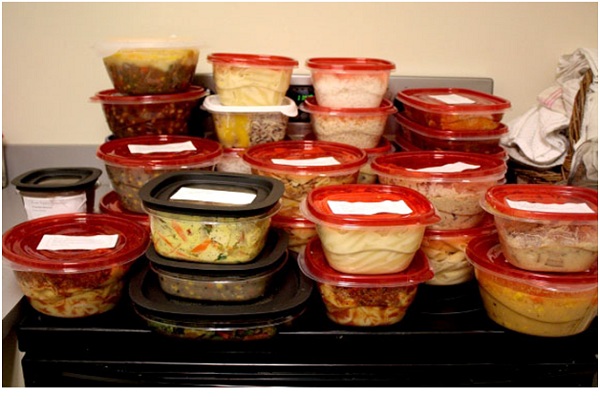Knowing how to store food safely can make or break your business!
Safe food storage is all about avoiding cross contamination and spoilage to keep you and your customers safe.
Cleaning
It may seem obvious, but it is easy to miss things when there is so much else going on. It is very important to keep all your food storage areas clean and tidy to reduce the risk of cross-contamination and to provide a safe and pleasant working environment for staff. Providing checklists for daily, weekly and monthly cleaning jobs is a great way to keep on top of things and uphold standards.
Labelling and wrapping
Wherever food is stored, it should always be kept in an appropriate container and covered with a well-fitting lid or cling film and clearly labelled with a use-by date. Where packaging has been removed, you will need to use day dots so that every employee can clearly see whether the item is still safe to use.
Staff training
Ensuring that all members of staff are adhering to safe food storage practices is possibly the most important point, as standards need to be upheld even during a busy service. If staff don’t know how to store food safely, it is only a matter of time before there is an incident of cross contamination and someone gets sick. The Food Standards Agency offers lots of information on staff training and food safety standards.
Fridges and freezers
Keeping food at the right temperature prevents bacteria multiplying and food spoiling as quickly. Ideally, you should have separate commercial refrigeration units for raw meat, raw fish, vegetables, salad, and cooked or ready-to-eat items. In smaller kitchens this may not be possible, in which case you should group different food types together and keep the most hazardous items, such as raw meat, fish and eggs, at the bottom of the unit with cooked items at the top to avoid cross contamination. If you are looking to improve your kitchen, suppliers such as FFD Ltd offer refrigeration storage ideas to make your kitchen as safe and practical as possible.
The dry store
Although cross-contamination from bacteria is less likely with dry goods, it is still important to be aware of allergens. Make sure everything is kept in clean, dry, lidded tubs and is labelled clearly and correctly.

